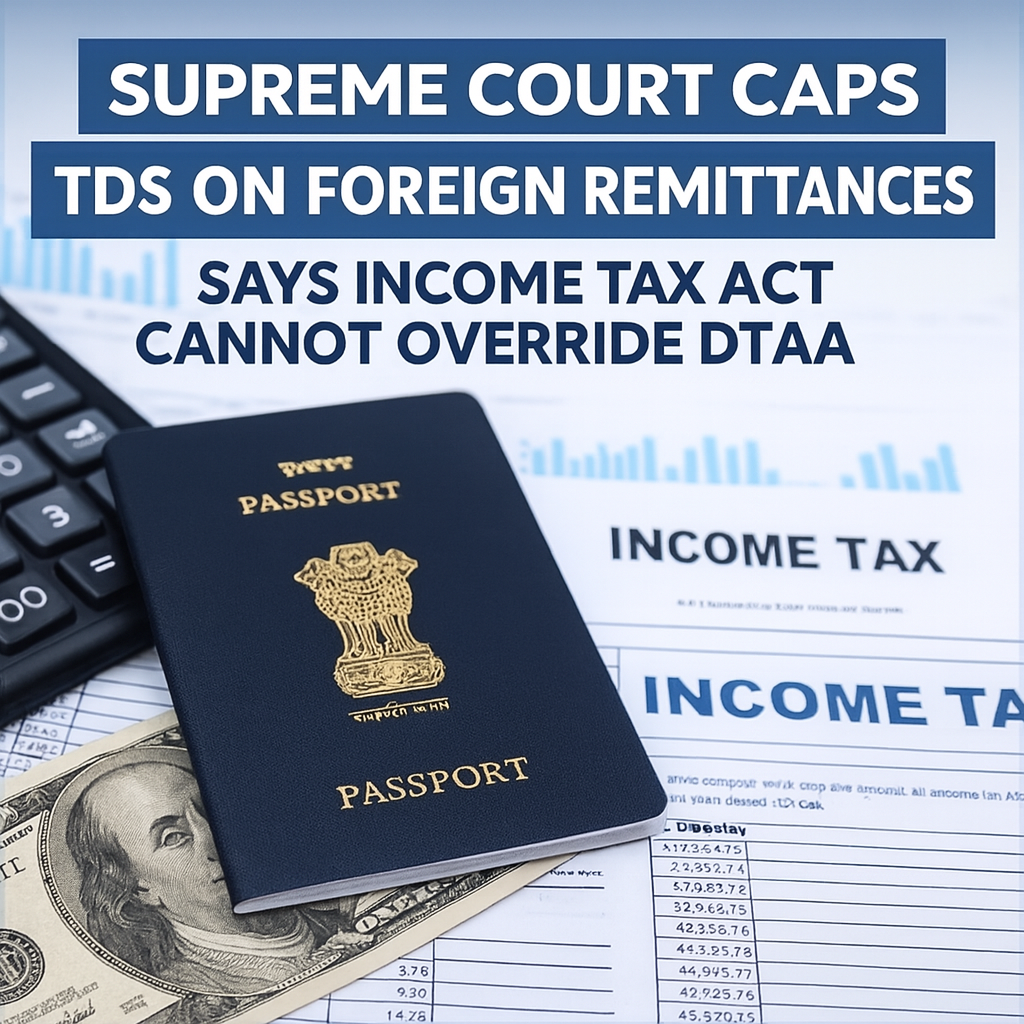The Supreme Court has fixed the maximum TDS on foreign remittances at 10%, stating that provisions of the Income Tax Act cannot prevail over those in the DTAA.
New Delhi: The Supreme Court on Tuesday ruled that tax deducted at source (TDS) on payments made to non-resident entities cannot exceed the 10% limit prescribed under various Double Tax Avoidance Agreements (DTAAs). Any higher demand raised by the income tax authorities would therefore be contrary to treaty provisions.
The Court dismissed appeals filed by the income tax department, which had sought a 20% TDS rate from IT companies such as Mphasis, Wipro, and Manthan Software Services. The department’s position was that a higher rate should apply when the foreign recipient does not provide a permanent account number (PAN), as required under Section 206AA of the Income Tax Act, 1961.
The Supreme Court held that the TDS provisions under the Income Tax Act must be interpreted in conjunction with the DTAA, and that when a foreign recipient qualifies for treaty benefits, the tax deduction cannot exceed the DTAA’s specified ceiling—often 10%.
Affirming a 2022 judgment of the Karnataka High Court, the bench stated that the DTAA rate takes precedence over Section 206AA. Any interpretation permitting tax authorities to levy more than the treaty rate would be inconsistent with the statutory framework, the Court noted.
This position aligns with the Supreme Court’s 2023 affirmation of a Delhi High Court ruling from July 2022, which also held that Section 206AA cannot override DTAA provisions.
The revenue department had earlier argued that a survey conducted under Section 133A(2A) revealed remittances made to non-residents without appropriate TDS. According to the department, failure to furnish a PAN automatically triggered the 20% TDS rate under Section 206AA(1)(iii).
During the proceedings, the IT companies contended that their payments were for technical services rendered by foreign entities and were subject to the beneficial tax rates outlined under the respective DTAAs.

